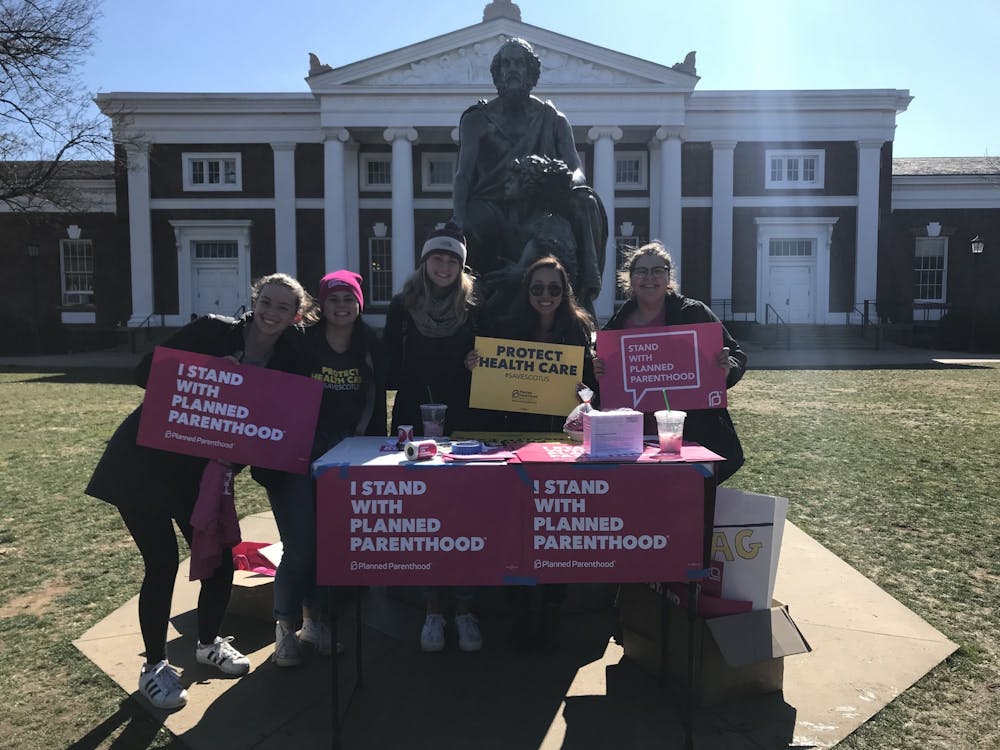The University’s chapter of Planned Parenthood Generation Action — the university-level branch of Planned Parenthood — released a petition to University administration Feb. 29 concerning a need for immediate improvement in the way the Elson Student Health Center provides support and information about reproductive healthcare services.
The petition, with 136 signatures as of Thursday, is organized into three primary goals — transparency of services offered and the costs associated with them, emergency contraceptive access during weekends and the regular supply of both hormonal and non-hormonal intrauterine devices. The letter is addressed to University President Jim Ryan, Executive Director of Student Health Christopher Holstege and members of the Board of Visitors.
Emma Duane, PPGA campaign manager and second-year College student, is in charge of creating the timeline of when PPGA would like to see changes take place. She believes the transparency concerning funding and IUD supply goals could be achieved by the end of the semester.
“The [Student Health] website right now is lacking lots of specific information about what services are offered, how much they cost and taking into account insurance,” Duane said. “I want students to be able to find that information very quickly and very easily without having to go in and call and set up appointments to talk.”
As a part of their second goal, PPGA aims to have wellness vending machines placed in various semi-private places around Grounds, which would allow students to access contraceptives while Student Health is closed on the weekends. These machines would offer items related to sexual health such as condoms, Plan B and tampons. Several campuses across the country have already implemented these machines — including George Mason University — despite controversy over whether over-the-counter contraceptives, like Plan B, should be made freely accessible.
“A lot of students and a lot of people don't like the face-to-face interactions that come with buying Plan B at CVS or some type of pharmacy, where you have to have that interaction with the cashier,” Duane said. “Sometimes some people feel embarrassed or judged.”
In regards to the third goal, pertaining to IUDs, Student Health currently only has a limited supply of copper and other non-hormonal IUDs, according to Noah Strike, PPGA president and second-year College student. In order to get a hormonal IUD, which acts as long-term birth control but not emergency contraception, students must place an order at Student Health and wait for the IUD to arrive.
Also according to Strike, the two biggest barriers in the way of achieving the goals on the petition are the logistics with Student Health — considering it is a part of the larger public University, which has to follow state law in regards to regulation of emergency contraception — and the costs associated with the completion of the goals. However, Strike also said communication with Student Health has gone smoothly thus far.
Student Health did not respond to request for comment on this article.
In addition to asking students to sign the petition, PPGA has storyforms available for students to fill out if they wish to share a negative experience or difficulty they have had with Student Health, especially in regards to reproductive healthcare and why reproductive healthcare is important. According to Duane, the story forms will be released after spring break.
“We really want to incorporate student voices into this campaign, so it's really important that we hear from students and why they personally support these changes,” Strike said. “We hope that that'll also be very impactful for Student Health, to be able go to them with not only a petition of names but also a series of short paragraphs from students.”





